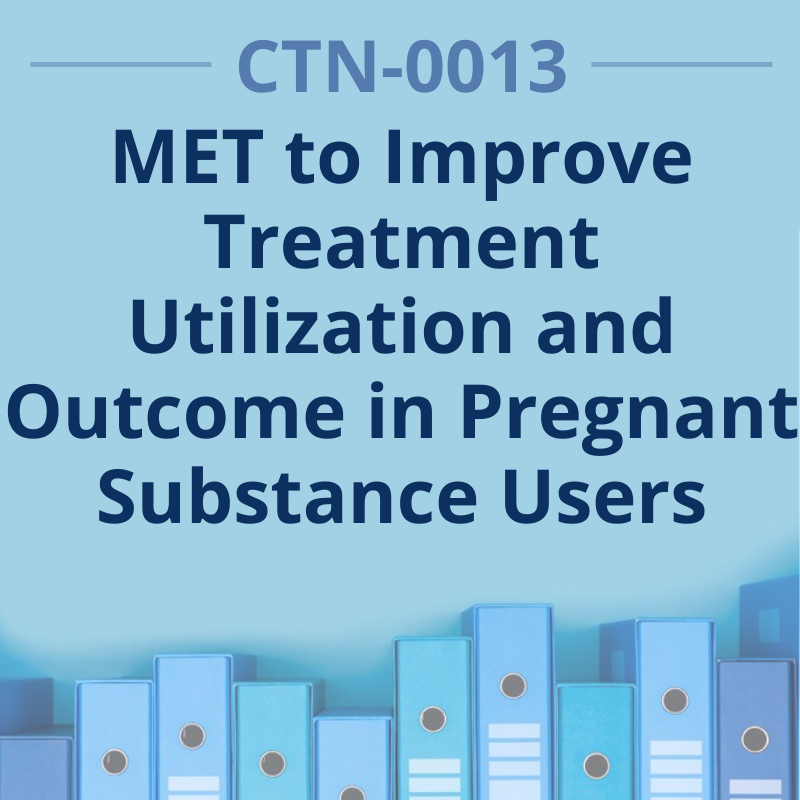CTN-0013: Motivational Enhancement Therapy to Improve Treatment Utilization and Outcome in Pregnant Substance Users

Theresa Winhusen, PhD
Lead Investigator
University of Cincinnati
CinARC
winhusen@mdru.uc.edu
About 5% of women use illicit substances during pregnancy, and approximately 22% of these also report using tobacco or alcohol. While a number of treatment programs have begun to offer treatment specifically designed for pregnant substance abusers, it is difficult to keep these women in treatment. Brief motivational sessions have been found to improve treatment engagement and outcomes in both alcohol- and drug-using women. This study compared one such treatment intervention, Motivational Enhancement Therapy (MET), with standard treatment. The three individual MET sessions focused on developing rapport, exploring perceived pros and cons of using substances, reviewing the participant’s feedback on the consequences of substance use and the status of her pregnancy, and developing a change plan or strengthening the commitment to change. Patients assigned to standard treatment received an equal number of visits consisting of the treatment normally given in that clinic.
Primary Findings
Participants attended 62% of scheduled treatment on average, and reported decreased substance use during the first month of treatment, with no differences between MET and treatment-as-usual (TAU) participants. There was some evidence that the efficacy of MET varied between sites, and that MET might be more beneficial than TAU in decreasing substance use in minority participants. These results suggest that MET is not more effective than TAU for pregnant substance users in general, but that there might be particular subgroups or treatment programs for which MET might be more or less effective than TAU.

Primary Outcomes Article: Winhusen T, et al. Motivational enhancement therapy to improve treatment utilization and outcome in pregnant substance users. Journal of Substance Abuse Treatment 2008;35(2):161-173.
Related Studies
Related Resources
- CTN-0013 Study Protocol
- Publications in the Library about CTN-0013
- Study data from NIDA Data Share
- ClinicalTrials.gov (NCT00078143)
- NIDA protocol page
Node Involvement
Lead Node(s):
All Participating Nodes: